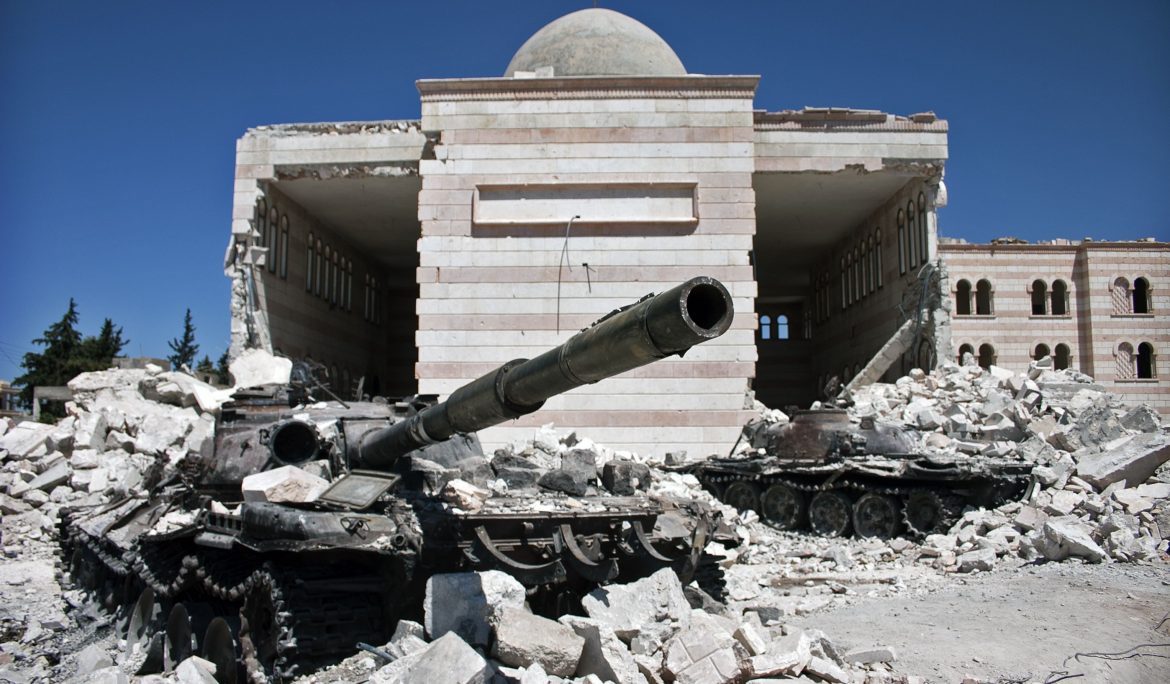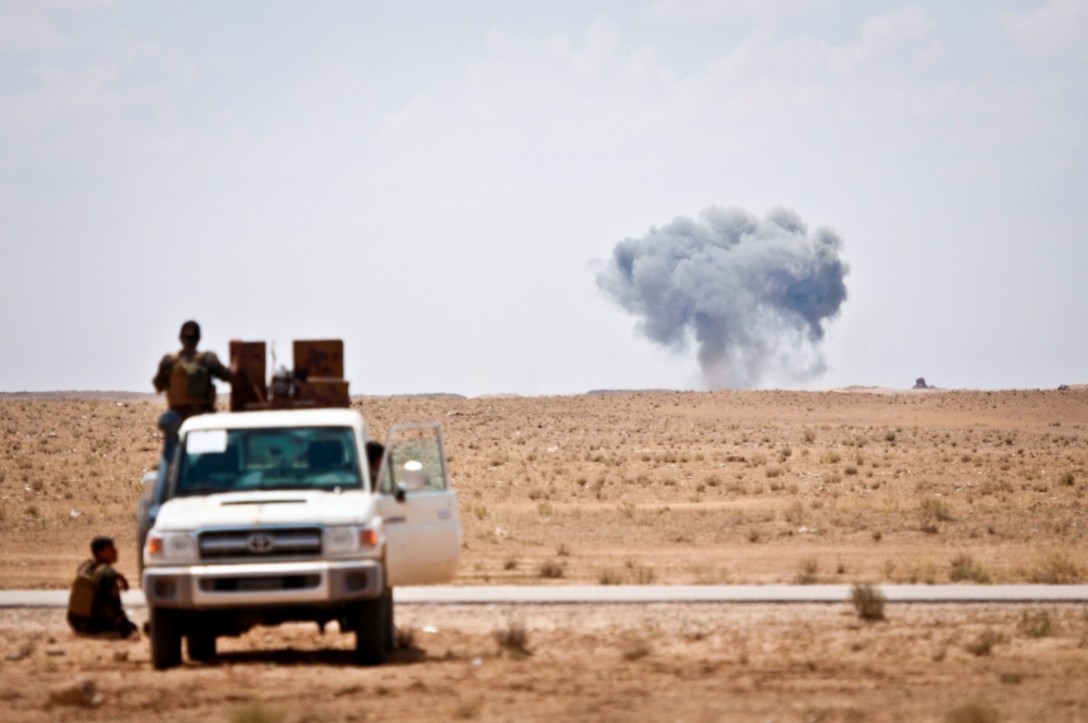Novichok between opinion and fact – Part 2: When alternative facts become blatant untruths
On 18 April 2018 the Executive Council of the Organisation for the Prohibition of Chemical Weapons (OPCW) held its 59th meeting, which was wholly dedicated to the assassination attempt with a nerve agent of the Novichok family. The Technical Secretariat presented its classified full ‘Report on Activities Carried out in Support of a Request for Technical Assistance by the United Kingdom of Great Britain and Northern Ireland (Technical Assistance Visit TAV/02/18)’. A summary released by the Technical Secretariat on 12 April, although lacking in detail, stated that: Two OPCW designated laboratories confirmed that the three hospitalised individuals had been exposed …
Promoting chemical knowledge
On 2 May the Technical Secretariat of the Organisation for the Prohibition of Chemical Weapons (OPCW) organised a workshop relating to its programme to fully implement Article XI of the Chemical Weapons Convention (CWC). I addressed the States Parties in the session on ‘Promoting chemical knowledge’ and focussed on the responsibilities of chemists, both as members of their scientific associations and as individuals, in preventing the misuse of their discipline. Consequences down the road The role of chemists in war is not a new thing. The role of chemists in chemical warfare is of more recent origin. Just over a …
What is a chemical weapon? When is chlorine a chemical weapon?
A recurring question in the context of the investigation by the Organisation for the Prohibition of Chemical Weapons (OPCW) into the use of chlorine in the attack against Douma on 7 April is whether chlorine is actually a chemical weapon (CW). The simple answer is ‘yes’ if the chemical element is released as method of warfare, an act of terrorism, or any other deliberate act intended to harm or kill a person or animal. There are two elements in the Chemical Weapons Convention (CWC) to bear in mind, namely the definition of a CW and the three Schedules (or lists …
Draft decision of the OPCW Executive Council on Syrian CW destruction
The Executive Council (EC) of the Organisation for the Prohibition of Chemical Weapons (OPCW) is due to meet tonight, 27 September, at 10pm CET. Below is the text of the draft decision. Some of the highlights of the document are: The OPCW believes that the ultimate destruction deadline of mid-2014, as foreseen in the US-Russian Framework Agreement is achievable. The organisation recognises the need for a surge capacity in order to fulfil its own tasks, and will draw on past personnel with appropriate expertise as well as on voluntary contributions by states parties. The OPCW will work according to modified …
Internationalisation of Syria’s chemical weapon stockpile?
The idea of internationalising Syria’s stockpile is doable, but what would it take? Some first thoughts to launch an international and constructive discussion by Jean Pascal Zanders and Ralf Trapp Yesterday, Russian Foreign Minister Sergey Lavrov launched an idea—in the meantime accepted by Syria—based on an offhand remark by US Secretary of State that Syria might avoid punitive military strikes if it were to ‘turn over every single bit of his chemical weapons to the international community in the next week’. He said: We are calling on the Syrian authorities not only agree on putting chemical weapons storages under international …
Nuclear Terrorism – Book published
Nuclear Terrorism: Countering the Threat Edited by Brecht Volders and Tom Sauer Routledge, 262 pages About the Book This volume aims to improve understanding of nuclear security and the prevention of nuclear terrorism. Nuclear terrorism is perceived as one of the most immediate and extreme threats to global security today. While the international community has made important progress in securing fissile material, there are still important steps to be made with nearly 2,000 metric tons of weapons-usable nuclear material spread around the globe. The volume addresses this complex phenomenon through an interdisciplinary approach: legal, criminal, technical, diplomatic, cultural, economic, and …
Green is the colour
The Organisation for the Prohibition of Chemical Warfare (OPCW) is about to investigate the various allegations of the use of chlorine in Syria over the past few weeks. It is the right decision. It is the only decision possible in view of the many witness accounts and footage available on internet sites. However, the hope that the announcement of the fact-finding mission on 29 April might deter the perpetrator from future chlorine attacks was quickly dashed: a new chlorine bombing took place a day later. The symbolism of the date cannot be overstated. 29 April was the 17th anniversary of …
After 99 years, back to chlorine
Today is the 99th anniversary of the first massive chemical warfare attack. The agent of choice was chlorine. About 150 tonnes of the chemical was released simultaneously from around 6,000 cylinders over a length of 7 kilometres just north of Ypres. Lutz Haber—son of the German chemical warfare pioneer, Fritz Haber—described the opening scenes in his book The Poisonous Cloud (Clarendon Press, 1986): The cloud advanced slowly, moving at about 0.5 m/sec (just over 1 mph). It was white at first, owing to the condensation of the moisture in the surrounding air and, as the volume increased, it turned yellow-green. …
Talking disarmament for the Middle East
Last month Noha Tarek from Egypt commented on my reflection that neither members of the Non-Aligned Movement (NAM), with the exception of India, nor Arab League members have contributed financially or in kind to the elimination of Syria’s chemical weapons (CW). Syria participates in both groupings. She linked disarmament elements to a host of intra-regional and external politics and considered the relationship between Syria’s (read: Arab) CW and Israel’s nuclear arsenal. It has taken me a while to reply. I could have easily registered my disagreement with several elements, but that does not open new perspectives for disarmament in the …


